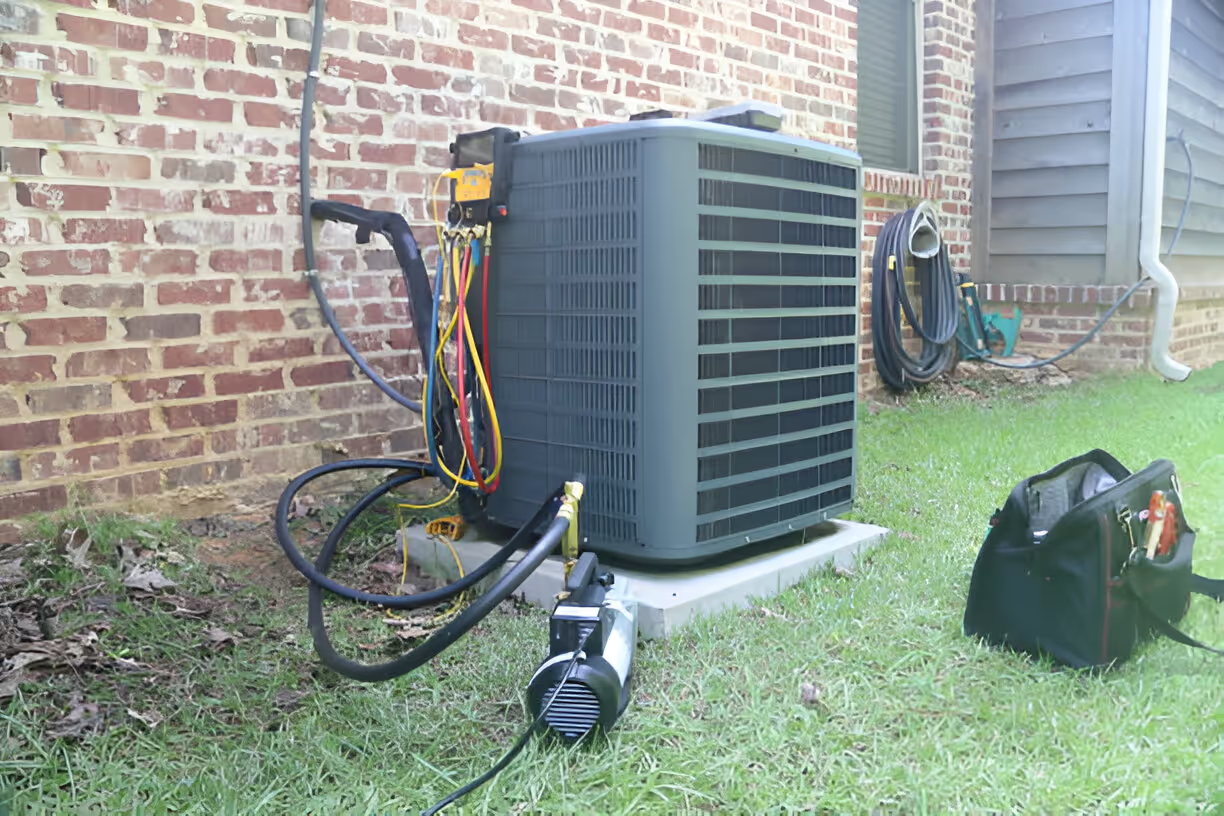Heat Pump Service in East Hampton, NY
Installing, maintaining, or repairing a heat pump in East Hampton, NY requires equipment and service tuned to coastal weather, high humidity, and seasonal temperature swings. Whether your system provides year-round heating and cooling, supplements a furnace in winter, or runs as a ductless mini split for rooms and additions, professional heat pump service keeps performance high, lowers operating costs, and extends equipment life.

Why heat pump service matters in East Hampton
East Hampton’s coastal climate creates two specific challenges: salty air that accelerates outdoor unit corrosion, and humid summers that demand reliable dehumidification. Winters can also bring cold snaps that stress heat pump performance. Timely diagnostics and routine maintenance prevent small issues from becoming costly failures, preserve efficiency during high-use months, and help your system meet local incentives and energy-savings expectations.
Common heat pump issues in East Hampton
- Reduced heating capacity on cold days (poor defrost cycle or weak refrigerant charge)
- Frequent short cycling or system shutting down (electrical faults, capacitors, control board problems)
- Icing of the outdoor unit outside normal defrost periods (defrost control, sensors, reversing valve)
- Inadequate cooling or uneven comfort (incorrect refrigerant charge, blocked coils, airflow restrictions)
- Loud or unusual noises (worn fan motor, compressor issues, loose mounting)
- Corrosion and refrigerant leaks from salt exposure to outdoor coils and fittings
- Poor humidity control and indoor air quality during humid months
Heat pump service options and diagnostics
Heat pump service in East Hampton typically begins with a structured diagnostic process to identify root causes and prioritize repairs:
- Visual inspection of indoor and outdoor units for corrosion, debris, and physical damage
- Performance testing: measuring suction and discharge pressures, temperature splits, and airflow
- Electrical checks: verifying voltage, current draw on compressors and fans, and testing capacitors and contactors
- Refrigerant assessment: locating leaks, testing for correct charge, and identifying oil or moisture contamination
- Control system and thermostat verification, including smart thermostat compatibility and Wi-Fi setup issues
- Defrost system and reversing valve function tests for winter performance
- Ductwork and airflow evaluation for packaged or ducted systems; zoning checks for multi-zone installations
Diagnostics are documented and used to provide clear repair options: from targeted component replacement to recommending full system replacement where cost-effective.
Typical repairs and practical solutions
- Refrigerant leak repair and recharge (followed by pressure testing and leak sealing)
- Replacing capacitors, contactors, fan motors, and relays that commonly fail with age or corrosion
- Compressor service or replacement when warranted; often paired with an evaluation of system age and efficiency loss
- Repair or replacement of reversing valve and defrost components to restore reliable heating in cold weather
- Coil cleaning, coil replacement, and anti-corrosion treatments for coastal installations
- Thermostat reprogramming or upgrade to a heat-pump compatible smart thermostat for better scheduling and savings
- Duct sealing, balancing, and airflow fixes to correct comfort problems and reduce running time
When repair frequency, repair cost, or efficiency loss becomes excessive, replacement is often the most economical option. Systems older than 10 to 15 years with multiple failures typically benefit from modern inverter-driven heat pumps that operate more efficiently in cold weather.
Installation and replacement considerations
- Proper sizing: oversizing causes short cycling and inefficiency; undersizing fails to meet load. Load calculations should account for East Hampton’s humidity and coastal heat gain.
- Cold-climate models: choose heat pumps rated for low ambient performance if winters dip frequently below freezing.
- Corrosion resistance: select outdoor units with enhanced finishes or protective coatings for salt air environments.
- Ductwork compatibility or ductless options: existing ducts may require sealing or modification; ductless mini splits are often ideal for historic or addition spaces.
- Hybrid systems: pairing a heat pump with a gas or oil furnace (dual fuel) can optimize efficiency and comfort through winter.
- Thermostat and controls: integrate with smart thermostats and zoning systems for targeted comfort and energy savings.
Service contracts and preventive maintenance
A heat pump maintenance plan is the most effective way to prevent emergency repairs and maintain peak efficiency:
- Typical plan features: biannual tune-ups (cooling and heating seasons), refrigerant level checks, coil cleaning, electrical safety inspections, filter checks or replacements, and defrost system verification
- Benefits: improved efficiency, extended equipment life, prioritized scheduling during seasonal demand, documented service history for resale value
- Local factors: East Hampton plans often include extra attention to outdoor coil corrosion prevention and drainage checks to prevent salt and debris buildup
Response times and emergency service expectations
In East Hampton, service needs range from routine tune-ups to emergency repairs during heat waves or cold snaps. Typical response expectations:
- Emergency heating or cooling failures: same-day or next-business-day priority where possible during peak seasons
- Routine diagnostics and repairs: 24 to 72 hours dependent on parts availability and seasonal demand
- Planned installations and replacements: scheduled within a reasonable window with clear timelines for lead times on equipment and permits
These timelines reflect local traffic, seasonal demand, and parts lead time; planning maintenance outside peak periods helps secure faster scheduling.
Compatibility with major brands and system types
Heat pump service in East Hampton covers most major manufacturers and system configurations. Technicians commonly service and install models from Daikin, Goodman, Bosch, Rheem, Amana, and other leading brands. Services include:
- Central air-source heat pumps and split systems
- Ductless mini split and multi-zone systems
- Hybrid systems combined with existing furnaces
- Integration with smart thermostats and home automation platforms
Technicians ensure refrigerant type, control wiring, and mechanical interfaces are matched correctly for reliable operation.
Maximizing performance and energy savings
- Maintain proper refrigerant charge and clean coils for peak heat exchange efficiency
- Use a heat-pump-compatible smart thermostat and take advantage of scheduling and setback features
- Seal and insulate ductwork and improve building envelope to reduce load on the system
- Consider variable-speed inverter systems for better part-load efficiency and quieter operation
- Use zoning or ductless solutions to avoid conditioning unused spaces
- Schedule tune-ups at least once per year, with a full inspection before heavy-use seasons to detect problems early
Many East Hampton homeowners also pursue available incentives and rebates to lower upgrade costs; some programs offer significant per-ton rebates that improve payback on high-efficiency replacements.
Final considerations
Reliable heat pump service in East Hampton blends coastal-aware installation practices, timely diagnostics and repairs, and preventive maintenance designed to protect performance in humid summers and cold winters. Proper servicing reduces energy bills, limits disruptions during extreme weather, and ensures your heat pump meets the comfort needs of your home year-round. Regular maintenance, correct sizing, corrosion protection, and modern control strategies are the keys to long-term savings and dependable comfort in East Hampton homes.
Customer Testimonials
Hear directly from homeowners who trust Bobby O’s HVAC Inc. for fast response times, honest service, and lasting comfort.











